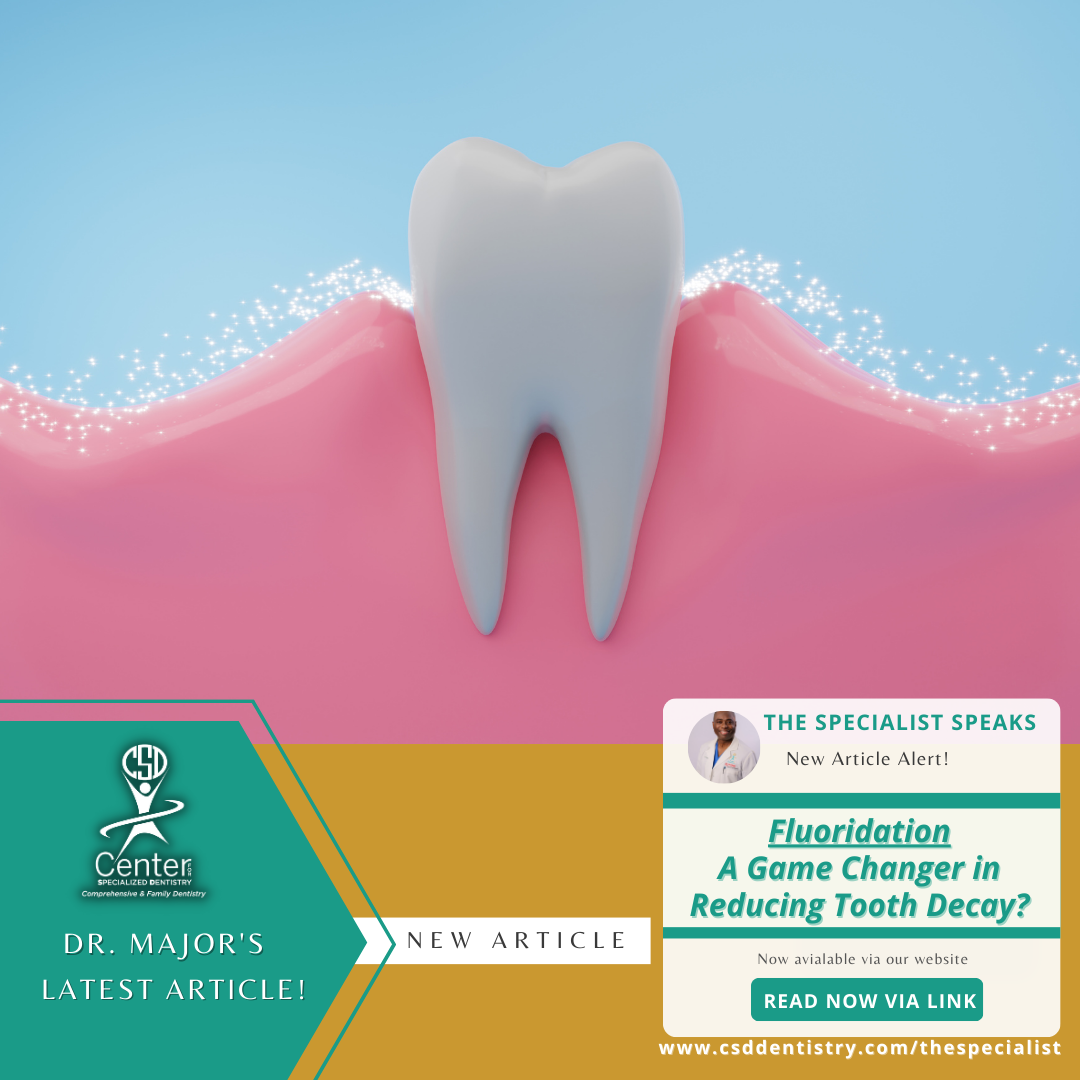In 2015 the Center for Disease Control named community water fluoridation as one of the ten greatest public health achievements of the 20th century. Today, the impact of fluoridation is 78 years old since the first community fluoridation program which began in Grand Rapids, Michigan. As a result of this innovation, there has been a dramatic reduction in tooth decay.
In this issue, we will discuss the role of fluoride in dentistry- its positive impact and accompanying controversy.
The mineral fluoride occurs naturally and is released from rocks into the soil, water and air. Fluoride has been proven to protect teeth from decay by helping to rebuild and strengthen the tooth’s enamel. Many communities today enjoy the benefits of fluoride treatment at many levels; drinking water, toothpastes, mouth rinses, sealants, gels, mouth drops and varnishes.
A community water fluoridation program is the process of adjusting the amount of fluoride in drinking water to a level recommended for preventing tooth decay. In 1945, the city of Grand Rapids, Michigan, was the first to add fluoride to its city water system. Since then, hundreds of cities over the world have started community water fluoridation and in 2023, approximately 80% of the United States is served by fluoridated community water systems.
Fluoride benefits children and adults throughout their lives. For young children, fluoride helps strengthen the adult (permanent) teeth that are developing under the gums. For adults, drinking water with fluoride strengthens tooth enamel, keeping teeth strong and healthy. Stronger and healthier teeth mean fewer cavities, less severe cavities, less pain and suffering and less dental expense.
While fluoride is undoubtedly good for oral health, there is ongoing controversy over the practice of community water fluoridation programs due to potential adverse side effects of excessive fluoride intake. The on-going debate regarding mass fluoridation by governments is also associated with the infringement of individual rights.
Nonetheless, many health and dental organizations worldwide endorse its safety and confirmed results. Most agencies view drinking water fluoridation as a way to free individuals from the agony associated with a bad tooth ache, especially those who are in a low socioeconomic level. What makes matters worse, is the challenging increased costs to the public, low productivity from not being able to work and the associated pain and suffering. So, the question is- Is it then unethical to fluoridate or is it unethical not to fluoridate?
Some literature opposing the fluoridation of drinking water commonly link fluoride exposure to a wide variety of ailments including HIV/AIDS, Alzheimer’s, arthritis, cancer and low IQ. Diseases of the gastrointestinal tract, kidneys and thyroid are also cited.
This author has not seen any substantiated data or studies to confirm the claims of fluoride opposers. In fact, in the Bahamas the common usage of commercial toothpastes today; along with fluoride drops for children, mouth rinses and gels have proven to be important building blocks to our preventive regimen for many patients. The drinking water in the Bahamas is not fluoridated. Should our government agency take a look at this? We will discuss in another issue.
Dr. Kendal V. O. Major is Founder and CEO of Center for Specialized Dentistry which is a comprehensive family dental practice operating in Nassau. He is the first Bahamian Specialist in gum diseases and dental implants since 1989. He also is a certified Fast braces provider. His practice is located at 89 Collins Avenue, Nassau at (242)325-5165 or [email protected].





